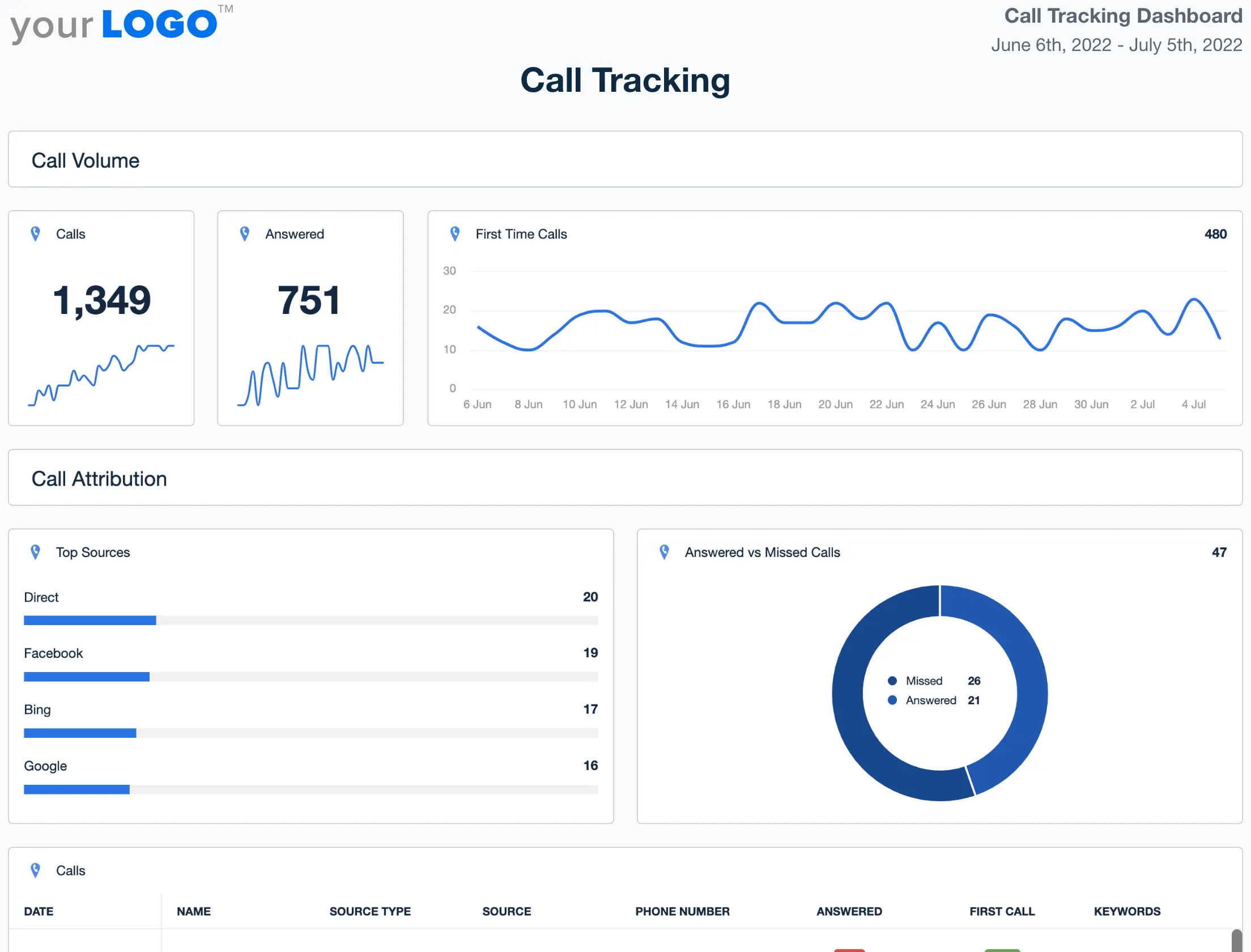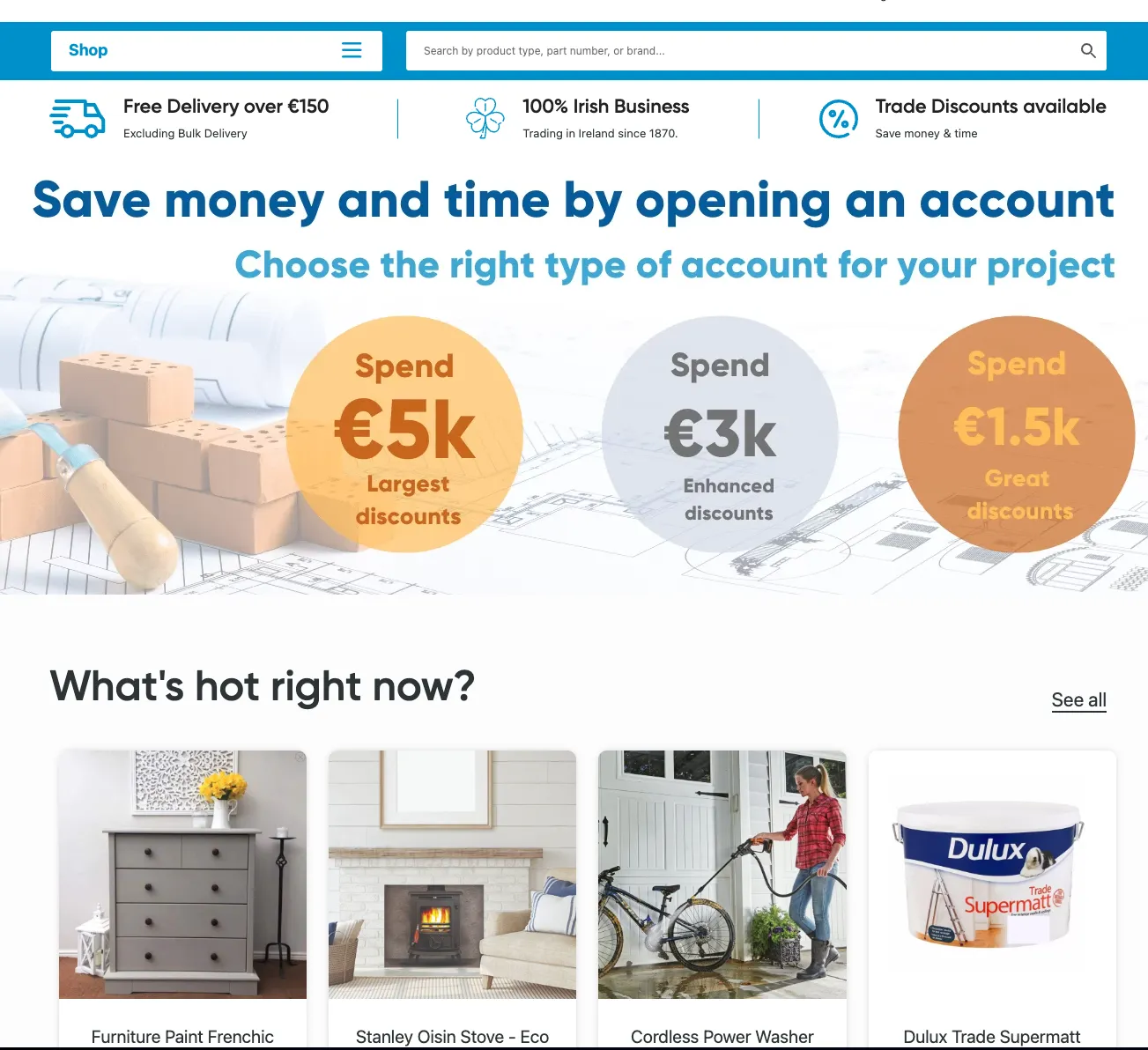Industry data shows that the average profit margin for Irish general contractors typically ranges between 10-20%, though larger, more established firms may see margins on the higher end. To boost profitability, contractors can employ strategies like carefully managing project costs, leveraging technology, diversifying their client base, and negotiating favourable rates with suppliers. Read on for a more detailed guide:
Key Takeaways
- Understand Profitability: Knowing your costs, setting competitive prices, and monitoring financial performance are crucial for a profitable business.
- Maximise Profitability: Streamline operations, negotiate better deals with suppliers, and invest in training to enhance efficiency and increase profits.
- Implement Increasing Earnings Strategies: Explore diversification, upselling services, and targeting niche markets to expand revenue streams and grow your business.
- Leverage Technology: Embrace construction management software, project tracking tools, and digital marketing to stay competitive and improve productivity.
- Utilise Effective Marketing Approaches: Develop a strong online presence, showcase past projects, and seek customer referrals to attract new clients and build your reputation.
- Build Strong Relationships: Foster partnerships with suppliers, subcontractors, and clients based on trust, communication, and delivering exceptional service to secure repeat business.
- Enhance Safety and Quality: Prioritise safety protocols, invest in training for your team, and maintain high standards to build a reputation for quality workmanship.
- Adapt to Business Environment: Stay informed about industry trends, regulations, and technological advancements to adapt your business strategies and stay ahead of the competition.
- Practice Sound Financial Management: Keep accurate records, manage cash flow effectively, and seek professional advice when needed to ensure the financial health of your construction business.
Understanding Profitability

As a general contractor in Ireland, understanding the local market is crucial to staying competitive in the construction industry. By identifying high-demand services and tailoring your offerings accordingly, you can effectively meet the needs of potential clients.
Knowing Your Local Market
- Understand local market demands: Stay informed about the construction services that are in high demand in your area, such as sustainable building practices or smart home technologies.
- Analyse industry trends: Keep track of the latest trends and innovations in the construction sector to identify emerging opportunities.
- Establish trust with clients: Develop a strong reputation for quality work and reliable service to build trust with potential clients.
Building a Robust Network
- Develop a network of subcontractors and suppliers: Cultivate strong relationships with reliable subcontractors and suppliers to ensure timely project completion and maintain high-quality standards.
- Leverage referrals and repeat business: Provide excellent service to foster customer loyalty and generate consistent revenue streams through referrals and repeat business.
Ensuring Compliance and Efficiency
- Stay up-to-date with industry regulations and certifications: Maintain compliance with all legal requirements to avoid any issues or penalties.
- Utilise project management software: Leverage technology to streamline your operations, improve efficiency, and reduce overhead costs.
By focusing on local market demands, building a robust network, and ensuring compliance and efficiency, general contractors in Ireland can thrive in the competitive construction industry.
Maximising Profitability
Project Planning

By creating detailed project plans with clear timelines and milestones, contractors can ensure efficient progress. Collaborating closely with clients to understand their vision and goals helps align the project deliverables with client expectations. Anticipating potential challenges and developing contingency plans allows contractors to navigate unexpected issues smoothly.
Industry data shows that contractors who utilise dedicated project management software, such as Procore or Buildertrend, see, on average, a 20% improvement in productivity and a 15% reduction in project delivery times. For example, Buildme, a renovations company in Dublin was able to streamline their workflows, enhance collaboration, and gain real-time visibility into project progress using Procore, leading to tighter cost control and faster project completions.
Cost Tracking

Cost tracking is essential for maintaining healthy profit margins in the construction industry. Utilising cost-tracking software allows contractors to monitor expenses in real-time accurately. Conducting regular cost audits helps identify areas of overspending or waste, enabling proactive cost-saving measures implementation. Negotiating favourable contracts with suppliers is key to reducing material costs significantly without compromising quality.To maximise profitability as a general contractor in Ireland, it’s crucial to have a comprehensive understanding of financial aspects related to projects such as budget allocation and expense monitoring.
Recommended Cost Tracking Platforms and Apps
- Workyard: A construction time clock app that provides accurate live construction cost tracking, easy-to-use labor compliance rules, and integrations with popular payroll and accounting systems.
- Zoho Projects: A free construction project management software that offers job costing, resource management, and document management capabilities.
- Contractor Foreman: A construction management software that provides essential tools like scheduling, time tracking, job costing, and invoicing, with plans starting at €49 per month.
- Teamwork.com: A project management platform that includes job costing, invoicing, and reporting features for construction businesses, with plans starting at €5.99 per user per month.
By leveraging these cost-tracking platforms and apps, general contractors in Ireland can improve financial control, prevent cost overruns, and enhance overall profitability in the construction industry.
Diverse Revenue Streams
Expanding your service repertoire isn’t just about growing—it’s about strategically widening your reach and boosting revenue streams. Think beyond the basics; offering additional services like landscaping, property maintenance, or interior design can reel in a diverse clientele.
Forge partnerships with complementary businesses—think architects or real estate agents—to open up mutually beneficial cross-promotional opportunities. And don’t forget about exploring new markets; expanding geographically can unlock fresh business prospects and broaden your customer base.
Innovative business models like design-build or construction management can give you an edge. And consider adding value-added services, like energy-efficient solutions or smart home technology, to differentiate yourself from the competition.
Finally, going green isn’t just trendy—it’s smart business. Sustainable construction practices not only benefit the environment but also appeal to eco-conscious clients who are willing to pay extra for environmentally friendly projects. because who wouldn’t want to save the planet while making some green?
Viable Launch Options
Starting as a subcontractor before transitioning into a general contractor role allows you to gain valuable experience in managing projects without shouldering the full responsibilities of running a contracting business from day one. Acquiring an existing construction business provides an instant client base and ongoing projects that can jumpstart growth and profitability without having to build everything from scratch. Building a strong online presence through professional websites showcasing past projects, client testimonials, and engaging social media platforms helps establish credibility in the digital age where many clients seek contractors online.
Upselling Clients
Another effective tactic is upselling clients on extra services or upgrades. This can increase revenue without significant additional costs, as the contractor is utilising their existing expertise and resources. However, it’s crucial to avoid over-promising on deliverables during the upselling process, as this could strain client relationships.
Pros:
- Increased profitability through effective cost-saving strategies
- Opportunity to generate additional revenue by upselling services
- Improved competitiveness by offering more value to clients
- Strengthened relationships with reliable suppliers and subcontractors
Cons:
- Risk of overpromising on deliverables during the upselling process
- Potential strain on supplier relationships when negotiating terms
- Possibility of client dissatisfaction if extra services or upgrades are not delivered as promised
- Time and resources required to research and implement cost-saving measures
Call Tracking Software

Industry studies show that contractors who utilise call tracking software see, on average, a 25% increase in lead conversion rates and a 20% reduction in missed business opportunities. By deploying a robust call tracking system, they were able to analyse caller data, optimise their marketing campaigns, and provide more personalised service, leading to a 30% boost in repeat business.
From advanced analytics to automated call routing, there are numerous call tracking platforms designed to meet the unique needs of the construction industry, such as CallRail, CallTrackingMetrics, and MsixCallout.
Optimising Operations
By streamlining communication channels through digital platforms, such as project management software or mobile apps, information flows seamlessly across all levels of a project.
Regular performance reviews help identify operational inefficiencies that need improvement within a contracting business. These reviews allow for adjustments to be made promptly, ensuring projects stay on schedule and within budget constraints.
Having strong leadership skills is crucial for overseeing technological implementations effectively while managing teams efficiently.
- Key Information:
- Technology investment improves project tracking.
- Communication streamlining enhances collaboration efficiency.
Effective Marketing Approaches

Building a strong brand is crucial for general contractors to attract clients. Creating a unique brand identity helps set you apart from competitors. Showcasing past projects through an online portfolio or case studies can demonstrate your expertise and style to potential customers. Leveraging positive client testimonials and reviews enhances your brand credibility, showing that you deliver quality work consistently.
Improving the customer experience is equally important in the construction industry. Providing exceptional customer service throughout the construction process can lead to satisfied clients who are more likely to recommend your services to others. Regularly communicating project updates and addressing client concerns promptly fosters trust and transparency between you and your customers. Offering post-construction support and maintenance services shows that you value long-term relationships with your clients beyond just completing a project successfully.
Ensuring that clients have a seamless experience from start to finish can significantly impact their satisfaction levels, leading to repeat business and referrals. By focusing on both building a strong brand presence and prioritising excellent customer service, general contractors can establish themselves as reputable professionals in the industry.
Building Strong Relationships
Supplier Partnerships

Building trust with suppliers is crucial for a general contractor to succeed. By cultivating strong relationships, contractors can secure competitive pricing and reliable services. Collaborating with suppliers on joint marketing initiatives benefits both parties by expanding reach and increasing business opportunities. Negotiating long-term contracts or volume discounts ensures cost savings, contributing to the overall profitability of the projects.
Establishing partnerships with suppliers not only guarantees quality materials but also streamlines project timelines through efficient procurement processes. For instance, forming an exclusive partnership with a local hardware store can provide immediate access to essential supplies at discounted rates, enabling timely project completion. Such collaborations foster loyalty and reliability in the supply chain, enhancing the contractor’s reputation within the industry.
Employee Management

Effective employee management is essential for maintaining high standards of workmanship in construction projects. Hiring skilled and experienced workers ensures that tasks are completed efficiently and up to standard. Providing ongoing training opportunities allows employees to enhance their skills continuously, leading to improved performance on-site. Implementing performance-based incentives motivates employees to strive for excellence in their work, boosting productivity levels across all projects.
Personal development plays a significant role in employee retention and job satisfaction within the construction industry. As a general contractor myself, I have found that investing in my team’s growth not only improves project outcomes but also fosters loyalty among employees who feel valued and supported in their career progression journey.
Enhancing Safety and Quality
Quality Control
Quality control is essential for maintaining high standards in construction projects. Establishing strict quality control processes ensures that every aspect of the project meets the required specifications. By conducting regular inspections and audits, general contractors can identify any potential issues early on, preventing costly rework or delays. Addressing client feedback promptly not only enhances satisfaction but also helps in resolving any quality-related concerns efficiently.
To maintain a reputation for excellence, general contractors must prioritise safety measures on construction sites. Comprehensive training programmes ensure that workers are well-equipped to handle various tasks safely. Adhering to all relevant health and safety regulations is crucial to creating a secure work environment. Regular safety audits help in identifying potential hazards and implementing measures to mitigate risks effectively.
Personal insight: In my experience as a general contractor, I have found that investing time and resources into establishing robust quality control processes pays off in the long run. Client satisfaction often hinges on the attention to detail provided by ensuring high-quality standards are met consistently.
Safety Measures
Safety should always be a top priority for general contractors overseeing construction projects. Implementing comprehensive training programmes equips workers with the necessary knowledge and skills to perform their duties safely. Adhering strictly to health and safety regulations not only protects workers but also safeguards against legal liabilities.
Regular safety audits play a vital role in ensuring that construction sites remain hazard-free environments where accidents are minimised. General contractors need to proactively identify potential risks and take proactive steps towards mitigating them promptly.
Adapting to Business Environment
Evolving Strategies
To succeed in making money as a general contractor, continuous evaluation of market trends is crucial. By embracing new technologies and construction methods, efficiency can be improved significantly. Monitoring competitor activities allows for identifying opportunities to stand out in the market.
Adapting business strategies based on market dynamics ensures staying ahead of the competition. For instance, integrating Building Information Modelling (BIM) software can streamline project management processes efficiently. Embracing sustainable construction practices not only aligns with current trends but also attracts environmentally conscious clients.
Stress Management
Effective stress management techniques are essential for maintaining productivity and well-being in the demanding field of general contracting. Delegating tasks among team members helps prevent burnout and ensures that responsibilities are evenly distributed. Prioritising work-life balance by setting boundaries between work hours and personal time is vital for long-term success.
Implementing mindfulness exercises or meditation sessions into daily routines can help reduce stress levels significantly, contributing to better decision-making and problem-solving skills within the business environment. Regularly reviewing project timelines and budgets while keeping open lines of communication with clients fosters transparency and trust, ultimately reducing unnecessary stressors.
Financial Management in Construction
Managing Finances
Collaborating with an accountant or financial advisor is crucial for a general contractor to ensure proper financial management. By working closely with professionals, contractors can gain valuable insights into their financial health and make informed decisions. Effective budgeting techniques are essential for managing costs efficiently and ensuring that projects remain profitable. Regularly reviewing financial reports allows contractors to pinpoint areas where costs can be reduced or revenue increased.
Engaging with an accountant helps in navigating the complex world of taxes and ensures compliance with regulations, which is vital for the sustainability of construction companies. Implementing robust budgeting strategies enables contractors to allocate resources effectively, preventing overspending on projects unnecessarily.
Prioritising Profitability
Prioritising profitability should be at the forefront of decision-making processes. Making decisions based on data analysis rather than gut feelings can lead to more sustainable growth and long-term success. Seeking out new opportunities for expansion is key to increasing revenue streams and diversifying the business portfolio.
Regularly evaluating business strategies allows general contractors to adapt quickly to market changes and stay ahead of competitors by offering innovative solutions tailored towards maximising profits. It’s essential for contractors not only to focus on short-term gains but also plan strategically for long-term financial stability.
In conclusion, the key to thriving as a general contractor lies in understanding profitability, maximising earnings through various strategies, leveraging technology, effective marketing, building strong relationships, ensuring safety and quality, adapting to the business environment, and sound financial management. By implementing these practices diligently, one can enhance their reputation and success in the construction industry. Remember, continuous improvement is vital for long-term sustainability. Stay informed about industry trends, seek opportunities for growth, and always prioritise delivering exceptional results to clients. Your commitment to excellence will set you apart in this competitive field.
Frequently Asked Questions
What are the typical profit margins for general contractors?
The typical profit margins for general contractors can vary widely, but industry averages tend to be in the range of 10-20%. Larger, more established general contractors may see profit margins on the higher end of that range, while smaller or less experienced firms may be closer to the lower end. Factors that affect profit margins include the type of projects, labor and material costs, competition in the local market, and the contractor’s overhead expenses.
How do general contractors price their services?
General contractors typically price their services using a combination of cost-plus pricing and competitive bidding. They’ll first calculate their direct costs for labor, materials, and subcontractors. Then they’ll add a markup to cover their overhead expenses and desired profit margin, usually in the range of 10-30% depending on the project. For competitive bids, they’ll research similar projects in the area and price their services competitively to win the work.
What are some effective marketing approaches that general contractors can implement?
General contractors should focus on creating a strong online presence through a professional website showcasing past projects, using social media platforms to engage with potential clients, and leveraging search engine optimisation (SEO) techniques to increase visibility.






